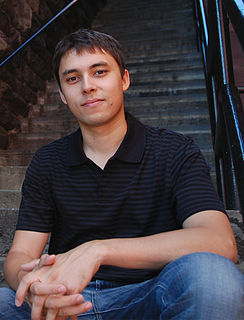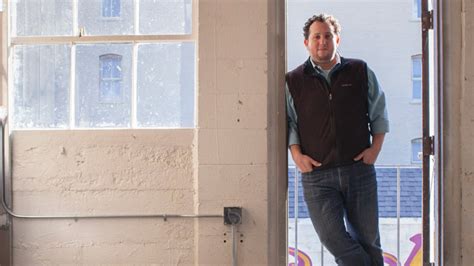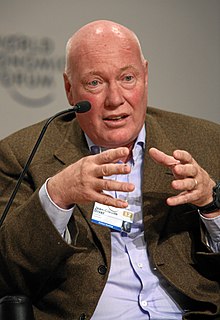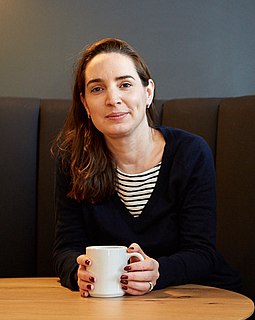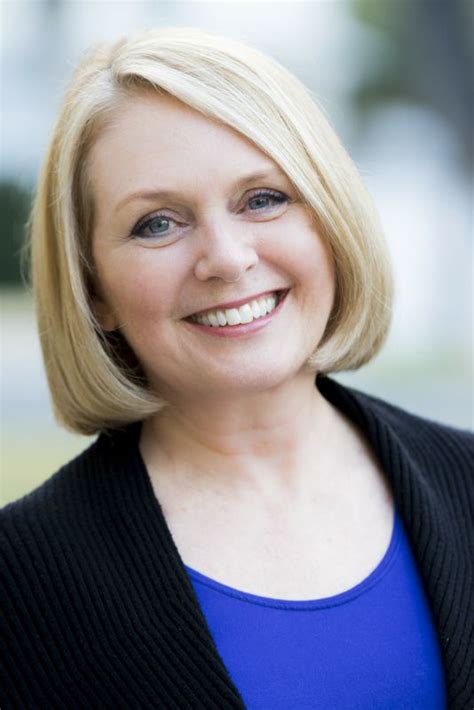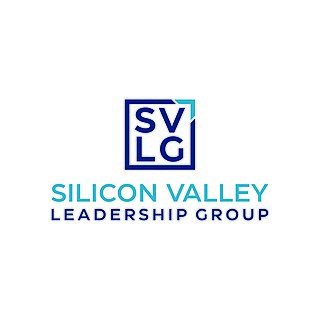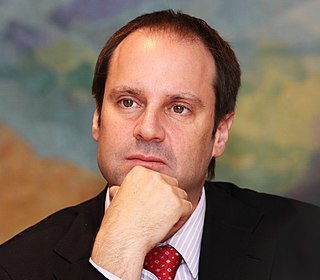Top 1200 Silicon Valley Quotes & Sayings - Page 7
Explore popular Silicon Valley quotes.
Last updated on April 21, 2025.
This rise of the new global mega-rich is happening as established institutions are falling. The fall runs the gamut from the music business and traditional media to the Detroit automakers who find themselves obsolete, outmaneuvered, and out-priced by entrepreneurs in Silicon Valley, Mumbai, Shanghai, and even Siberia.
There is no greater country on Earth for entrepreneurship than America. In every category, from the high-tech world of Silicon Valley, where I live, to University R&D labs, to countless Main Street small business owners, Americans are taking risks, embracing new ideas and - most importantly - creating jobs.
Running a successful, growing company in Silicon Valley can create an ironic sort of depression and delusion. The better you're doing, the higher the stakes, and higher expectations for you to win. Maybe that's why people say it's so hard. But that doesn't make it hard. That just makes it distracting.
The thing we should all be looking for are people who want to make a difference. I'm a big believer in the Silicon Valley religion of the power of markets. But I also believe in our obligation to give back, and to give back in the way we do business, to create more value than we capture for ourselves.
The institutions that we've built up over the years to protect our individual privacy rights from the government don't apply to the private sector. The Fourth Amendment doesn't apply to corporations. The Freedom of Information Act doesn't apply to Silicon Valley. And you can't impeach Google if it breaks its 'Don't be evil' campaign pledge.
Success in Silicon Valley, most would agree, is more merit-driven than almost any other place in the world. It doesn't matter how old you are, what sex you are, what politics you support or what color you are. If your idea rocks and you can execute, you can change the world and/or get really, stinking rich.
Distribution may not matter in fictional worlds, but it matters in most. The Field of Dreams conceit is especially popular in Silicon Valley, where engineers are biased toward building cool stuff rather than selling it. But customers will not come just because you build it. You have to make this happen, and it's harder than it looks.
Those in technology who can afford to stay in Silicon Valley all know it as one of the most beautiful places to live in the world, but a wariness has sunk in as folks from other walks of life are forced to leave: coffee shops are wall-to-wall with aspiring entrepreneurs, and restaurants buzz with talk of valuations and venture capital.
At Silicon Valley, I'm extremely sympathetic to the revolutionary response. I not only agree with it emotionally. I agree with it practically. And the only thing I disagree with is, I don't think Donald Trump is that. Trump is blow it up for no good reason at all. You want to actually do revolution with a target, with an idea, with building a new system.
I'm speaking to you from Silicon Valley, where some of the most prominent and successful companies have built their businesses by lulling their customers into complacency about their personal information. They're gobbling up everything they can learn about you and trying to monetize it. We think that's wrong. And it's not the kind of company that Apple wants to be.
I understand what scripting and programming is, but do I know how to do it? Not really. But, I think that even knocking on the door allows you to understand a little bit of that kind of stuff. Mainly what 'Silicon Valley' has taught me, in that respect, is the business side of it, with that gold rush element as opposed to creating software.
The correct answer is the University Titans, the West Valley Eagles, the Central Valley Bears, the East Valley Knights, the Riverside Rams. The fact you don't even know an answer to the question like [naming all the Spokane Valley High School Mascots] means you don't even know the district. How can you represent the district if you don't even know it?
Silicon Valley companies need to be asked to bring the best and brightest, the most recent technology to the table. I was asked as a CEO. I complied happily. And they will as well. But they have not been asked. That's why it cost billions of dollars to build an [Barack] Obama website that failed because the private sector wasn't asked.
Social life was different for me in college. I didn't go to as many parties as my friends did. I didn't join a sorority because I knew I couldn't make a long-term commitment. I was constantly traveling back and forth from Silicon Valley to Austin for internships. It was hard, but it was worth it for where I wanted to go.
When I was in high school and college, I'd always been into websites, and when you'd read about sites and the companies and people behind them, they were always in Silicon Valley. This one's in Mountain View, this one's in Palo Alto. They're all right here. I knew I wanted to move out here, whether it was to work at Google or some other company.
I know it's a cliche, but I see myself as a citizen of the world. I was brought up in Switzerland by German and Turkish parents but I've very much grown up in San Francisco. I have a European sense of aesthetic, but I'm also deeply steeped in the notion of change and entrepreneurship that is associated with Silicon Valley.
The decision to join Stripe and run 'Increment' was a pretty easy one for me: It was an opportunity to be impactful, to collect and share best practices from the most effective engineering teams in the world. 'Increment' is a step toward flattening the distance between the Silicon Valley elite and developers everywhere.
The Silicon Valley companies are not understating that they are so politically and socially and culturally central in the world. They would probably never have thought that they would become like this. But now that they are, what are they gonna do about it? I have a lots of friends who work in these companies: it's about taking responsibility.
A big factor is that the enthusiast camp's values are really rooted in Silicon Valley and in these supposedly new business models. But again, I think this such an interesting moment because things like the NSA revelations are really forcing people to recognize the connections between corporate and government surveillance.
The reason we have so much talent in Silicon Valley building and investing in for-profit technology companies is that markets richly reward successful ideas, no matter who invents them. But to remain competitive in a free market, companies must exercise discipline to meet quantitative goals and eventually become cashflow positive.
I was doing stand-up at the Improv and when the host introduces you, 'OK, the next comedian, you've seen him on 'Silicon Valley.' People always clap. They really watch the show and they are fans of it. And then they said, 'You are also going to see him in 'Crazy Rich Asians,' and I did not expect this, but the applause was even louder.
The Silicon Valley Manufacturing Group strongly supports green-line policies, because the only way to attract top level employees and their families is to protect the region's open space and environment. We want to build a community that is demonstrates smart growth rather than a model for L.A.-type growth.
think there's a culture of Silicon Valley that seems to have the attitude that you can have it both ways, that you can be an insurgent but also, ultimately, it's paid for by advertising, when in fact advertising is totally retrograde. Now that's an industry we should be disrupting, and maybe you disrupt it by funding public media. None of this is technological destiny; there are only social choices.
The perception in Silicon Valley is that if you dress well, you couldn't possibly be smart, or you're in P.R. but couldn't possibly run a company. I remember briefly attempting the Adidas and jeans and sweatshirt over T-shirt look, but I realized I was trying to dress like a young tech geek, and that just wasn't me.
Of all the inventions of humans, the computer is going to rank near or at the top as history unfolds and we look back. It is the most awesome tool that we have ever invented. I feel incredibly lucky to be at exactly the right place in Silicon Valley, at exactly the right time, historically, where this invention has taken form.
Here in Silicon Valley, I have taken part in hundreds of conversations trying to convince people to dive in and become entrepreneurs. All too often, innovators with good, safe, jobs are unwilling to put their family's access to health care at risk by walking away from company-backed medical insurance.
I believe that Silicon Valley is truly a place of excellence and the impact of this tiny community on the world is completely disproportionate to its size. We are the undisputed leaders of technological change. But with our abundance of talent and resources, we also have the opportunity to be the pioneers of social change and, ultimately, this may be our greatest contribution.
